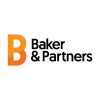Continue reading "Trusts: Worldwide freezing orders"
Trusts: Worldwide freezing orders

Simon Adamyk and Jessica Powers outline welcome clarification on the application process for obtaining freezing orders In order to establish a real risk of dissipation, the claimants had to do more than merely establish a good arguable case of dishonesty: rather, the court had to be satisfied that the particular dishonesty alleged pointed to the …







